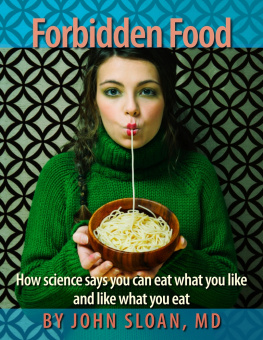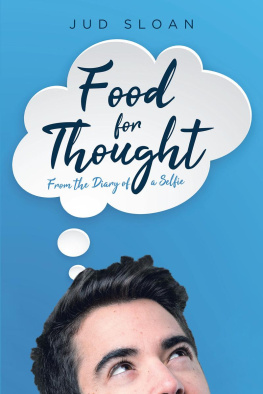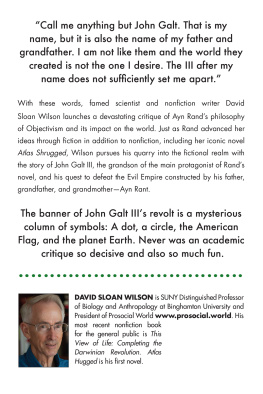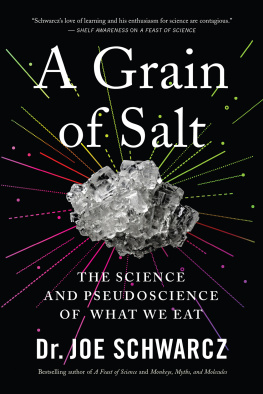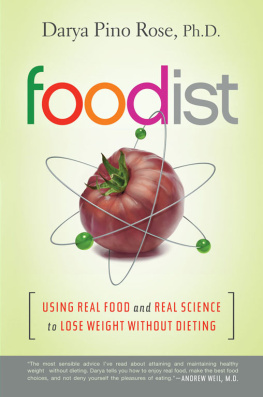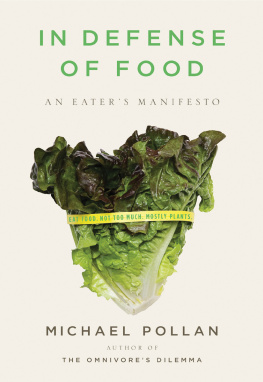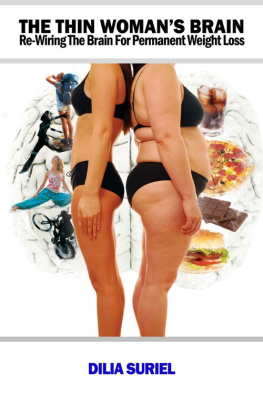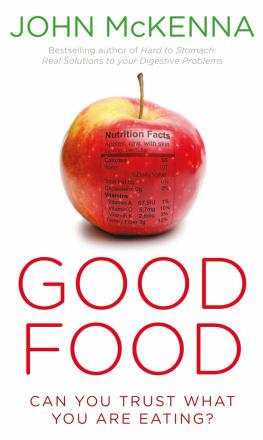All rights reserved. No part of this publication may be reproduced, stored in a retrieval system, or transmitted, in any form or by any means, electronic, mechanical, photocopying, recording, or otherwise, without the written prior permission of the author.
PREFACE
Once upon a time couple of unscrupulous characters with a sense of humour sold an imaginary set of clothes to an Emperor. Only people with wisdom, they convinced him, could see the magnificent raiment. Fools would see nothing. The Emperor took to the streets on his horse, everyone exclaiming at the wonder of the garments in hopes of hiding their own stupidity. A fascinating cautionary tale.
I can't fathom why diet professionals tell us things about food that are not supported by their own science. The scientific evidence so astonishingly contradicts most diet professionals' opinions, it's hard not to wonder whether some of them got overinvolved in their work. As a family physician with training in philosophy of science, scientific method and critical review of evidence, and also with enough sense of proportion to stand back and look at someone else's scientific work and conclusions objectively, I just may be the little boy on the sidelines of the Emperor's parade, declaring simply and correctly that he really has no clothes on at all. The only axes I have to grind are the conflicts of interest I declare below.
Of course academic focus is necessary in experts practices. But too close a focus may engender narrowness, experts settling into unassailable self-respect born of a more or less unique knowledge. I can't avoid concluding that this kind of myopia must have affected some diet experts' work. However well-intentioned they may be, in the end their conclusions start to look dishonest, self-serving and dangerous.
Experts are not the only people my views may offend. Once I began to see that science didn't support any connection between diet and health, it took me a couple of years to learn to be careful in conversations with very nice potential personal friends I didn't know until I found out how they felt about the subject. Several otherwise polite dinner times have ended early with bare civility and lack of eye contact before I figured out how to be discreet about my radical views. Diet and health is, after all, almost as hot-button an issue as abortion or euthanasia.
People have told me they find my opinions on the vacancy of healthy eating depressing. You mean there's nothing we can do to prevent (heart disease, cancer, fractures, car accidents...)? I'm not saying anything like that. Being cautious, being reasonable, following sound advice and trying to enjoy life are all, I am sure, wonderful and useful things to do. But if, as I believe, advice that you will live longer and prevent disease by eating certain foods has no basis in science, for me this would be cause for celebration, not a reason to feel blue and morose. I think the fundamental message of this book is liberating. Imagine the delicious treats you will enjoy without guilt.
I've decided to run the risk of taking on healthy eating common wisdom not only because there is virtually no scientific evidence to support it, but also because I have trouble abandoning some of my own attitudes about enjoying a long and healthy life. I'm declaring my conflict of interest in stating these main biases:
There has to be a good reason for me to change how I decide to live my life.
I am often skeptical about experts' advice, and usually, the better I know the field the expert is working in, the more skeptical I become.
I am a person, not a population.
I adore terrific food.
I'm attracted by how food makes me feel, not at all by its alleged health benefits. The taste, the smell, the look on the plate, the kindness and ceremony of service, the celebration that occurs with every meal (even enjoyed alone) and the culture and history of the dish all mean much more to me than the gastroenterology, biochemistry and epidemiology as they may be misapplied to the experience of eating.
When you read opinions on diet that come from an expert in nutrition, expect the party line. Here, I have intentionally stepped out of the academic box, and using my scientific education and a bit of common sense, Ive brought together what I saw inside the box, looking in from the outside. I was as surprised as I think you will be at what I found.
A Word of Caution
This book is trying to get rid of the idea that eating habits will influence health outcomes for the healthy majority of people. But caution may be required. It may not apply to a minority who have certain health conditions, and this note intends to suggest who some of those people might be. You may be one of them, so please read it carefully.
If a health professional you trust has told you that you need to be on a special diet because of a health condition you have, I think you ought to understand why. Dietary recommendations are made in many circumstances, and it may matter a lot to you which circumstances you're in.
First, there is a group of illnesses, most of them rare, for which certain things normally present in food will harm you and must be avoided. In gluten-induced enteropathy, for example, wheat causes problems with the bowel and a wheat-free diet cures the disease. In children born with phenylketonuria, an enzyme to process one of the amino acids is absent, and a low-phenylalanine diet is its only effective treatment. If you are truly allergic to any food, you must be careful to avoid that food. These examples are not at all a complete list of this category of illnesses. And anybody who has such an illness had better be careful not to misunderstand me when I say that healthy people can eat anything they want.
Second, the treatment of some risk factors for getting sick may include diet recommendations along with other treatment. With these ones, you may or may not benefit from being careful about what you eat. Included here are Type 2 diabetes, high blood pressure, early heart failure, osteoporosis and high cholesterol. All these are routinely treated with drugs. Whether you should follow dietary advice along with taking the pills (if you have a mild form of any of them) should be thought over carefully. If your cholesterol is in the low-risk range because of taking a drug for high cholesterol after a heart attack, for example, you might be interested to find out whether cutting down on cholesterol in your diet really makes any difference to your cholesterol levels, considering the fact that a low-cholesterol diet has never been shown to make any difference to your survival. The same is true for high blood pressure and salt. Much as I dislike the idea of taking a pill, the scientific evidence for preventive drugs is much better than that for diet. Caveat emptor .
Third, certain foods may make you feel bad. Fat could give you gallbladder pain, diarrhoea if you don't absorb fat well, or heartburn at night. You might find out that when you eat too much salt your ankles swell. There are all sorts of people in the world with whom certain foods don't agree in all sorts of ways. Possibly some of those foods are disagreeable because of nothing more than an attitude or belief, but it doesn't matter. The writing is on the wall and you can see it for yourself -- whether you make changes in your diet should depend on whether those changes help you or not.

